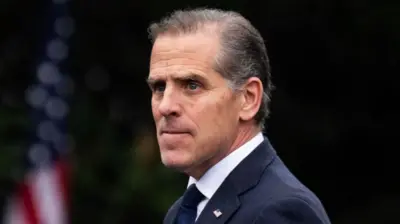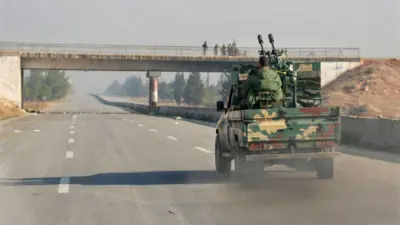We've updated our Privacy and Cookies Policy
We've made some important changes to our Privacy and Cookies Policy and we want you to know what this means for you and your data.
Should Crimea be leased to Russia?
Image source, AFP
- Author, Robert Peston
- Role, Economics editor
Is there a commercial solution to the crisis in Ukraine?
Lord Owen, the former foreign secretary who has advised Russian businesses interests for some time, thinks there may be.
He told me that a settlement could, in his view, involve Russia negotiating with Ukraine a lease on Crimea - which he regarded as analogous to America's lease on Guantanamo in Cuba.
And the background, of course, is that Russia already has a lease till 2042 on its substantial naval base at the Crimean port of Sevastopol. Originally negotiated in 1991, it was extended by 25 years in fraught negotiations in 2010.
Back then, involved Ukraine receiving substantial subsidies on Russian natural gas.
If that lease was viewed by the world as ethically tolerable, how big a leap would it be to negotiate a lease on all Crimean territory?
There is an argument that via a lease and negotiation of rent, at least the rest of the Ukraine would receive some kind of economic benefit for Russian occupation of Crimea.
That said, it will stick in the craw of many that the exercise of military might by Russia would apparently have its reward.
Lord Owen also argues that the natural parties in such a negotiation would be the UK, US, Ukraine and Russia, since in 1994 they agreed the continuing use of Sevastopol as a base for Russia's Black Sea fleet, as part of a wider agreement on nuclear non-proliferation.
The important point is that whatever the credibility of Russia's claims to wish to protect Russians living in Ukraine, the strategic importance for President Putin of the Sevastopol and Crimean base is huge.
It is vital for President Putin in ensuring all-year-round access for the Russian fleet to the warm waters of the Indian Ocean and Mediterranean.
Analysts say of Russia compromising or sacrificing this naval access via Crimea.
Anyway, there is certainly something very "modern Russia" about gas or cash being exchanged for territorial rights.
In some ways it would be redolent of the blunt tactics employed by the Russian government and a troika of oligarchs that eventually saw Rosneft, the Russian state-owned oil giant, acquire control of the substantial TNK business from BP and those billionaire plutocrats.
None of which is to argue that the world should be carved up on the basis of who has the deepest pockets and the most bulging military muscles.
Nor is it to say that it would be easy to calculate a fair rent for the whole of Crimea.
But the alternative, a region tottering sine die on the brink of catastrophe, may be worse.
Top Stories
More to explore
Most read
Content is not available








